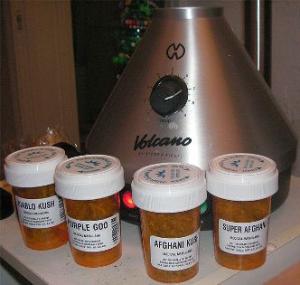Drug War Issues
Politics & Advocacy
The Kentucky legislature will be grappling with medical marijuana next year. State Senator Perry Clark (D-Louisville) Monday pre-filed a bill for the 2013 legislative session, saying he wanted to get a head start on building support at the state house.

"This is not a conservative issue or a liberal issue; it’s an issue of compassion," said Senator Clark. "Countless studies show that marijuana is effective at treating pain, nausea, loss of appetite, and other symptoms. If it was my family member, I would do anything to relieve their suffering."
The cannabis-friendly Clark -- he has previously introduced bills to legalize industrial hemp and to honor pioneering Kentucky marijuana activist Gatewood Galbraith after his death in January -- took pains to emphasize that this bill is only about medical marijuana.
"This is not about legalizing marijuana," he said. "It's about getting government out of healthcare, and putting science in."
Donna Fox, a patient from Louisville diagnosed with rheumatoid arthritis, welcomed the news.
"I was diagnosed with juvenile rheumatoid arthritis at age four. I've been living with this disease for 42 years and lost count many years ago as to how many injections I have endured and the thousands of pills I have swallowed," she said. "If medical marijuana, which carries far fewer and less severe side effects, can work then why should I be denied relief? I just want to live a functional life without the pain."
The Kentucky 2013 legislative session begins on January 2. Senator Clark, patients, and advocates will be hard at work lining up support between now and then, and during the session itself.
Medical marijuana is now legal in 17 states and the District of Columbia. It will be on the November ballot in two more states -- Arkansas and Massachusetts -- and, most likely, a third -- North Dakota.
This work by StoptheDrugWar.org is licensed under Creative Commons Attribution-ShareAlike 4.0 International
Comments
Register to vote
... stop that
As for potential opposition
As for potential opposition to the bill from anti-drug legislators, Senator Clark emphasized that the bill would only apply to marijuana for medical purposes. “This is not about legalizing marijuana. It’s about getting government out of healthcare, and putting science in.” Donna Fox, a patient from Louisville diagnosed with rheumatoid arthritis, welcomed the news. “I was diagnosed with juvenile rheumatoid arthritis at age four. I’ve been living with this disease for 42 years and lost count many years ago as to how many injections I have endured and the thousands of pills I have swallowed,” she said. “If medical marijuana, which carries far fewer and less severe side effects, can work then why should I be denied relief? I just want to live a functional life without the pain.” While Clark has acknowledged that finding support in the legislature will take time, popular support is strong. National polling shows that upwards of 70% of voters support medical marijuana laws, and support remains strong even in traditionally conservative states. For example, in Arkansas, where a medical marijuana initiative will appear on the November ballot, polls show that a plurality of voters there would vote in favor of allowing its use. Medical marijuana initiatives will also be on state ballots in Massachusetts and, likely, North Dakota.
Add new comment